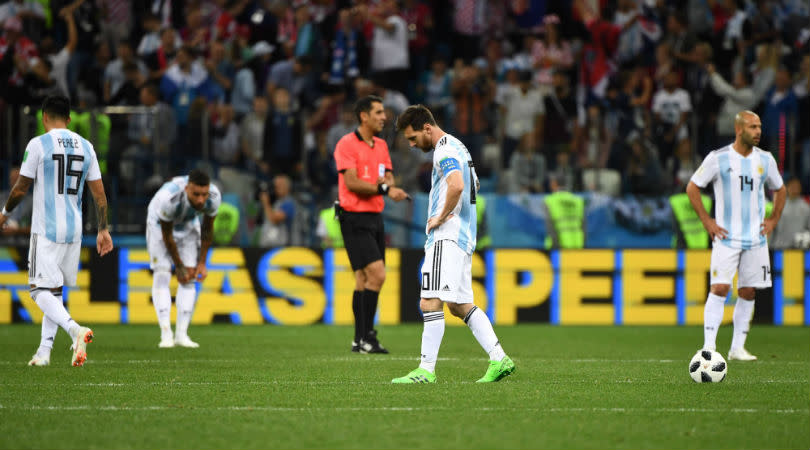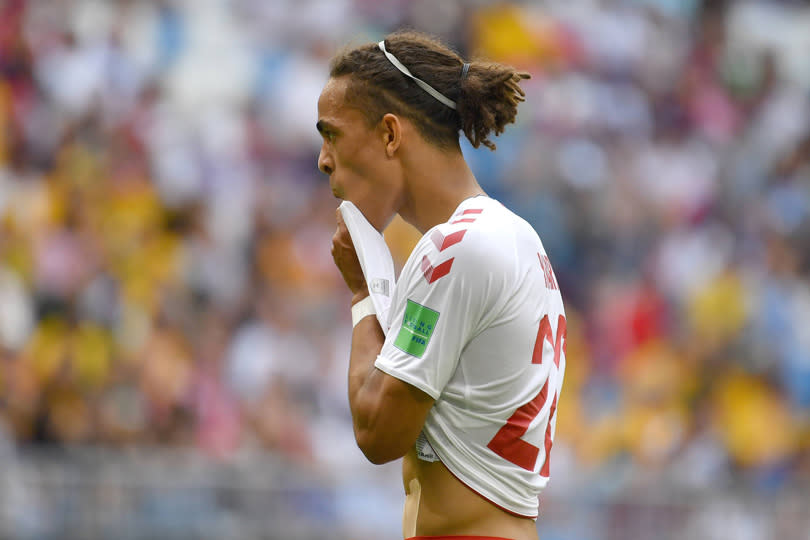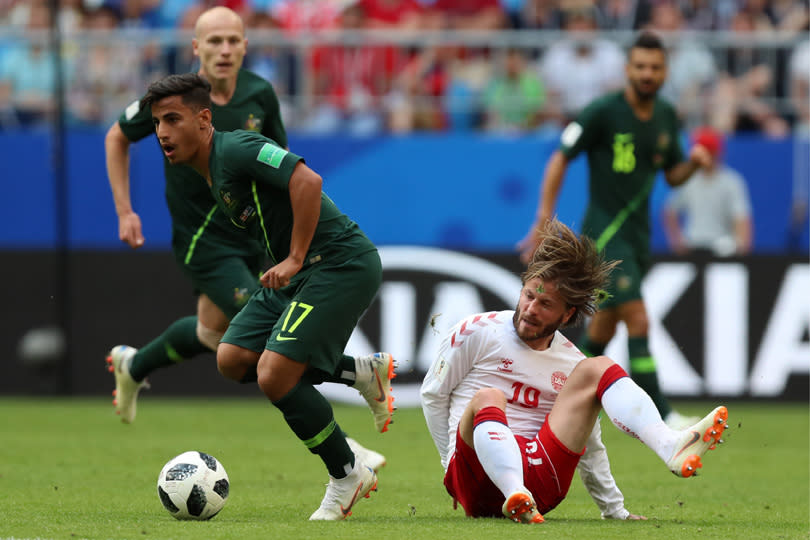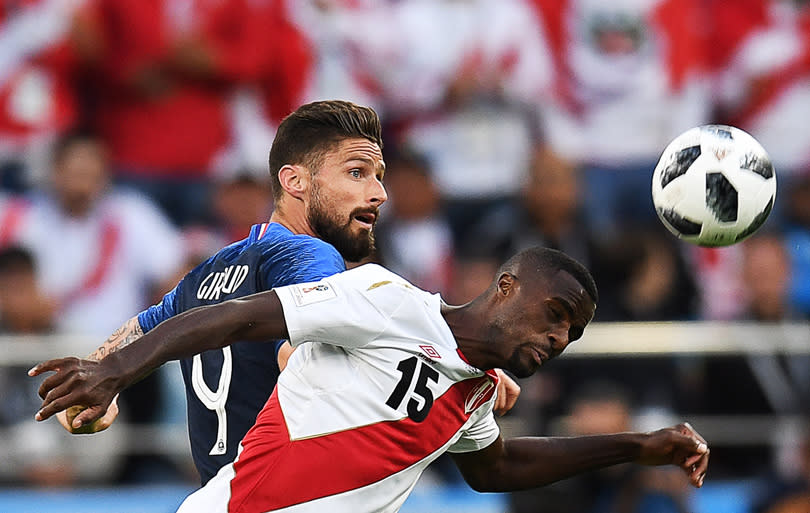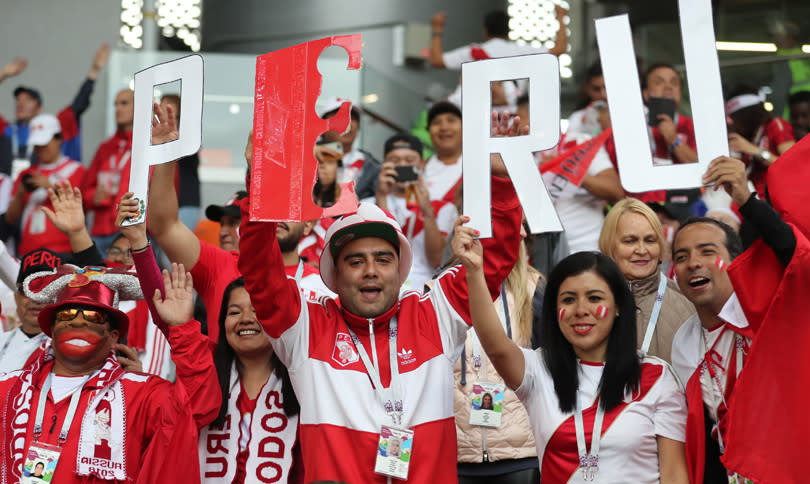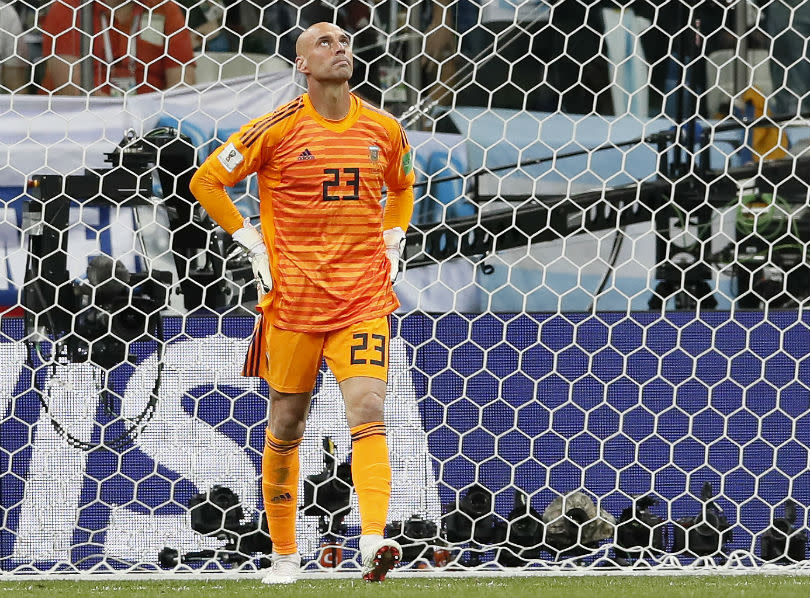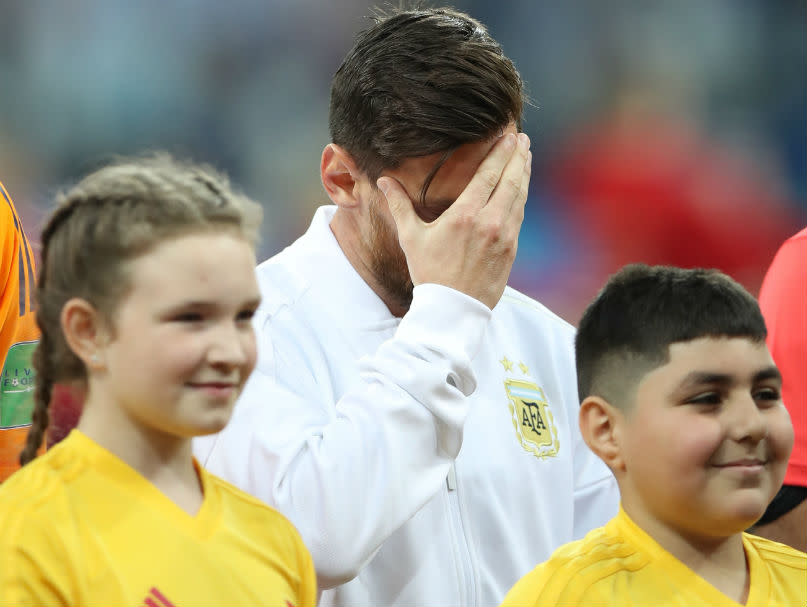World Cup, day eight: the things you might have missed
World Cup Willy makes Argentina look silly
Argentina's night wasn't exactly going to plan when goalkeeper Willy Caballero decided to chip towards his defender inside the box. The score was nil-nil, they'd missed an open goal in the first half, but also been fortunate not to concede themselves. It was hanging in the balance.
Caballero's chip didn't reach its intended destination, though; instead, the ball hovered helplessly in the air above Ante Rebic, who locked eyes on it like a hawk and larruped a volley back over his beleaguered opponent to break the deadlock. Argentina's net-minder could only put his hands to his face in horror; in a game littered with errors, this was the worst – and the only one that proved terminal in their humbling 3-0 defeat.
Jorge Sampoli looked like his head might explode with rage like a crushed plum as the game wore on, but the truth is that his team have been tactically inadequate to trouble anybody so far. As Cesc Fabregas opined post-match: "They were playing with five attackers and five defenders. As a midfielder, you would love that."
Now, if Iceland beat Nigeria on Friday, a mutually beneficial draw against Croatia in their final game would send both teams through.
Focus on Messi all wrong
There was a strange moment before kick-off when the camera panned along Argentina's starting XI and ended with their skipper. There was Lionel Messi; hand covering his face, eyes closed, looking away and somewhat tense. Perhaps it was a premonition for what was to come.
He is used to this now, though; the pressure of trying to lead a team with high expectations and low ability further than they should go. He has seen Cristiano Ronaldo almost singlehandedly rescue a point with a hat-trick against Spain, then score again to grab another three points for a limited Morocco side. And wrongly, he will be judged against that.
But there's something different about Messi in this team – a strange helplessness. You can blame him for missing a penalty against Iceland, certainly, but there is more to it than that in this desperately poor Argentina team. He has to drop deep to even touch the ball, let alone influence play with it, and is hounded out wherever he goes thanks to the lack of space created for him by others.
He will likely be held up again for not dragging this team through by the scruff, but that's simply unfair. As that bastion of banality, Mark Lawrenson, summed up: "You can't play without the ball."
Danes double down on first impression
Outplayed by Peru in their opener, Denmark were perhaps the most fortunate winners of the first round of games. They looked all set to improve on that display when Christian Eriksen’s sweet strike finished off an excellent Danish move just seven minutes after kick-off against Australia. Yet after that, they went largely toe-to-toe with a heroically game – but ultimately limited – Socceroos side.
The penalty which gave Australia their equaliser in this 1-1 draw may have been controversial, but they deserved their point on the balance of play. The lesson here is that while there tends to be a ‘surprise package’ or two at every World Cup, the Danes don't look likely to fulfil that role despite a healthy four points from two games. The pre-tournament view was that this was an average Danish side, overly reliant on Eriksen to provide the class. The performances so far do absolutely nothing to dispel that.
VAR from perfect
The panel of kitted-up video assistant referees have – in general – helped rather than hindered the World Cup. But there are still flaws to be ironed out with VAR. One issue is that when a referee on the pitch gets word that he should review an incident on the monitor, the strong implication is that he’s missed something – and should change his mind.
In Denmark’s 1-1 draw with Australia, referee Antonio Mateu was called to review a handball in the Danish area from Yussuf Poulsen. He duly awarded Australia a penalty (converted by Mile Jedinak). Yet in this case, VAR did not eliminate the controversy. The ball clearly struck Poulsen’s arm, but from point-blank range as he leapt for the ball. ITV’s in-house ref Mark Clattenburg, for one, didn’t believe it was a penalty even after reviewing the footage.
The big question is: when will a referee be told he needs to review an incident, look it over on the monitor, then have the brass tacks to stick to his original decision? Or, to put it another way, how quickly can we get Mike ‘Star of the Show’ Dean to Russia?
Selfless Giroud shows his value
Kylian Mbappe stole in to give France the crucial breakthrough in their 1-0 win over Peru, so understandably the 19-year-old took the headlines – particularly as he became France’s youngest ever World Cup goalscorer. Yet the difference in France’s attacking triumvirate from their first game against Australia was Olivier Giroud coming in for Ousmane Dembele – and it improved matters.
Mbappe and Antoine Griezmann have the flair, but Giroud was doing the dirty work; challenging in the air, laying the ball off, busying defenders. All things that will be familiar to Arsenal and Chelsea fans. It was Giroud’s shot, deflected over the Peruvian goalkeeper, that gave Mbappe the opportunity to his tap-in for his goal – and that summed up the Chelsea striker’s day.
Giroud didn’t dazzle but the French attack looked better balanced with him in it, even if the supply from midfield once again left plenty to be desired as Didier Deschamps’ men plodded through to the knockout stages.
Farewell, Peru
Their fans have brought incredible noise, verve and colour. Their players showed technical skills and dominated stretches of their games against Denmark, then France. But the painful truth is that Peru – like Morocco – completely lacked a cutting edge to back up their neat play. They failed to register a goal in either game and unfortunately that iconic sash won’t be seen after their final Group C game against Australia.
Words: Alex Reid, Joe Brewin

 Yahoo Sport
Yahoo Sport 






































